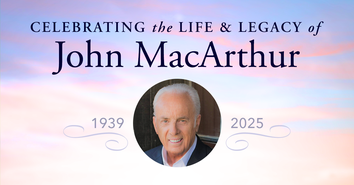Music's parallel religious universe
Published Mar 14, 2000

Last year conservative activist Paul Weyrich, in a widely circulated essay, thought he had stumbled onto something new by advocating that conservative Christians should disappear from the political scene, fall into a parallel religious universe and somehow disengage physically from the "secular" culture which he now believes is beyond repair. In so doing, Weyrich apparently believes, Christian values will thrive.
Actually, there is nothing very new or Christian about Weyrich's notion of separation for it has been tried in this century with disastrous results. Many cultural commentators have already noted that people of faith tried disengaging from popular culture after the humiliation of the Scopes Trial and the repeal of prohibition. Humiliated by such setbacks and believing that scientific and social progress were about to leave their beliefs in the dust, people of faith created just the kind of parallel universe Weyrich is now demanding. Christian colleges, Christian television stations, radio stations, magazines, newspapers and many other similar institutions came to power and pulled the faithful out of the primary culture.
A more recent example began in the late 1960's when young believers who wanted to play rock and roll were told that because the "secular" rock world of the Stones and the Beatles was bad, they must only play in the newly formed "Christian" rock music world. Over time "Contemporary Christian Music" as it has come to be known, grew into a half-billion dollar business whose purveyors profited handsomely from the segregation.
Ironically, just as Weyrich preaches separation, that Christian Music industry is in the middle of a collapse as its members begin to leave it for the wider world of "secular" rock music. Thirty years after its creation, artists who record in the Christian market began to realize that they were only playing to the already converted, recording for Christian record companies, hearing their "hits" only on Christian radio stations or faux MTV channels, being interviewed by the Christian press, and -- in short -- preaching to the choir.
The creation of the Christian Music Industry was destructive in several ways that Weyrich should take note of before he repeats the same mistake again.
First, it coaxed away from the primary culture rock music superstars who happened to undergo religious conversions and kept them from being heard by the primary culture of non-believers. 70's superstar B.J. Thomas retreated to the Christian music universe and was never heard from again -- as were many other stars like Mark Farner of Grand Funk Railroad, Kerry Livgren of Kansas, Dan Peek of America, Al Green, Dion, Philip Bailey of Earth, Wind & Fire, Leon Patillo of Santana and dozens of others.
Second, it pointed a whole new generation of young and talented artists away from the primary music culture and ushered them into the parallel culture where they were heard exclusively by the faithful.
Finally, it ushered thousands of DJ's, journalists, record company executives, producers, writers and other music industry professionals into the subculture and away from the mainstream music industry.
Obviously, popular culture reflects the views of the people who produce and consume it, so it is rather ridiculous for people of faith like Weyrich to think that they can have it both ways. It is simply impossible to withdraw from the primary culture, and attempt to influence it at the same time. It has been tried and it does not work.
Weyrich may be suffering from battle fatigue, but artists who were once stuck in the religious music culture are breaking out and doing exactly the opposite of what he is suggesting.
dc Talk left their Christian market label Forefront and signed with Virgin Records, a move that allowed their record to open at the #4 spot on the "secular" pop charts, sandwiched ironically enough between Marilyn Manson and the 70's legends KISS. Bob Carlisle's "Butterfly Kisses" dislodged the Spice Girls from the top of the pop charts last year and captured the nation's attention. Sixpence None The Richer, another band once sentenced to cultural obscurity found its single "Kiss Me," at the top of the pop charts. Other acts like BeBe Winans, Jon Gibson, CeCe Winans, Crystal Lewis and many others have made similar moves back into the primary music culture.
The new climate has also kept young artists of faith who would once have been ushered into the parallel universe to instead join the primary music culture and let their ideas matriculate through the wider pop culture.
Hanson, the kiddie pop band from Oklahoma are devout young believers who once considered signing with a religious label but chose the mainstream Atlantic instead. Gary Cherone, the departed lead singer of Van Halen is another who has allowed his faith to influence the band's songs, as have artists like Lenny Kravitz who won a Grammy for best rock song of the year, The Tories, Full On The Mouth, Creed, Collective Soul, Moby and Fleming & John.
Should Mr. Weyrich decide to lead a movement out of the primary culture and into a sanitized neat and tidy Christian political parallel universe, he will have few followers among recording artists who otherwise share his beliefs but have seen where such a road leads. They are too busy making sure that their music is heard by the primary culture and they will never go back to the bad old days of riding on the back of the cultural bus and segregation based on faith.
Would you like to weigh in? Send us your commentary and it may be posted in a future article on crosswalk.com. Email it to us at: Commentaries@crosswalk.com.
Mark Joseph is president of the L.A. based MJM Entertainment Group and author of The Rock and Roll Rebellion:Why People of Faith Abandoned Rock Music And Why They're Coming Back. (Broadman & Holman)
Actually, there is nothing very new or Christian about Weyrich's notion of separation for it has been tried in this century with disastrous results. Many cultural commentators have already noted that people of faith tried disengaging from popular culture after the humiliation of the Scopes Trial and the repeal of prohibition. Humiliated by such setbacks and believing that scientific and social progress were about to leave their beliefs in the dust, people of faith created just the kind of parallel universe Weyrich is now demanding. Christian colleges, Christian television stations, radio stations, magazines, newspapers and many other similar institutions came to power and pulled the faithful out of the primary culture.
A more recent example began in the late 1960's when young believers who wanted to play rock and roll were told that because the "secular" rock world of the Stones and the Beatles was bad, they must only play in the newly formed "Christian" rock music world. Over time "Contemporary Christian Music" as it has come to be known, grew into a half-billion dollar business whose purveyors profited handsomely from the segregation.
Ironically, just as Weyrich preaches separation, that Christian Music industry is in the middle of a collapse as its members begin to leave it for the wider world of "secular" rock music. Thirty years after its creation, artists who record in the Christian market began to realize that they were only playing to the already converted, recording for Christian record companies, hearing their "hits" only on Christian radio stations or faux MTV channels, being interviewed by the Christian press, and -- in short -- preaching to the choir.
The creation of the Christian Music Industry was destructive in several ways that Weyrich should take note of before he repeats the same mistake again.
First, it coaxed away from the primary culture rock music superstars who happened to undergo religious conversions and kept them from being heard by the primary culture of non-believers. 70's superstar B.J. Thomas retreated to the Christian music universe and was never heard from again -- as were many other stars like Mark Farner of Grand Funk Railroad, Kerry Livgren of Kansas, Dan Peek of America, Al Green, Dion, Philip Bailey of Earth, Wind & Fire, Leon Patillo of Santana and dozens of others.
Second, it pointed a whole new generation of young and talented artists away from the primary music culture and ushered them into the parallel culture where they were heard exclusively by the faithful.
Finally, it ushered thousands of DJ's, journalists, record company executives, producers, writers and other music industry professionals into the subculture and away from the mainstream music industry.
Obviously, popular culture reflects the views of the people who produce and consume it, so it is rather ridiculous for people of faith like Weyrich to think that they can have it both ways. It is simply impossible to withdraw from the primary culture, and attempt to influence it at the same time. It has been tried and it does not work.
Weyrich may be suffering from battle fatigue, but artists who were once stuck in the religious music culture are breaking out and doing exactly the opposite of what he is suggesting.
dc Talk left their Christian market label Forefront and signed with Virgin Records, a move that allowed their record to open at the #4 spot on the "secular" pop charts, sandwiched ironically enough between Marilyn Manson and the 70's legends KISS. Bob Carlisle's "Butterfly Kisses" dislodged the Spice Girls from the top of the pop charts last year and captured the nation's attention. Sixpence None The Richer, another band once sentenced to cultural obscurity found its single "Kiss Me," at the top of the pop charts. Other acts like BeBe Winans, Jon Gibson, CeCe Winans, Crystal Lewis and many others have made similar moves back into the primary music culture.
The new climate has also kept young artists of faith who would once have been ushered into the parallel universe to instead join the primary music culture and let their ideas matriculate through the wider pop culture.
Hanson, the kiddie pop band from Oklahoma are devout young believers who once considered signing with a religious label but chose the mainstream Atlantic instead. Gary Cherone, the departed lead singer of Van Halen is another who has allowed his faith to influence the band's songs, as have artists like Lenny Kravitz who won a Grammy for best rock song of the year, The Tories, Full On The Mouth, Creed, Collective Soul, Moby and Fleming & John.
Should Mr. Weyrich decide to lead a movement out of the primary culture and into a sanitized neat and tidy Christian political parallel universe, he will have few followers among recording artists who otherwise share his beliefs but have seen where such a road leads. They are too busy making sure that their music is heard by the primary culture and they will never go back to the bad old days of riding on the back of the cultural bus and segregation based on faith.
Would you like to weigh in? Send us your commentary and it may be posted in a future article on crosswalk.com. Email it to us at: Commentaries@crosswalk.com.
Mark Joseph is president of the L.A. based MJM Entertainment Group and author of The Rock and Roll Rebellion:Why People of Faith Abandoned Rock Music And Why They're Coming Back. (Broadman & Holman)
Originally published March 14, 2000.







